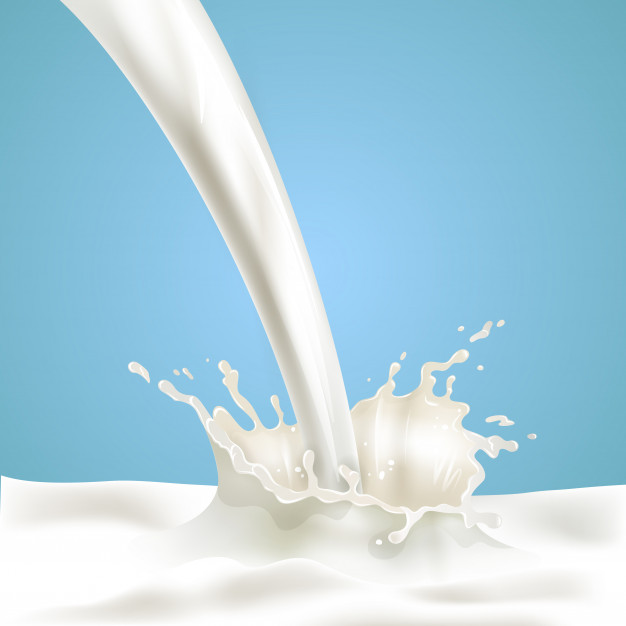
Dairy milk is a complex substance. For example, it contains 18 out of 20 essential proteins and amino acids, but it also contains saturated fats.
Perhaps this is why attempts to definitively identify its role in cardiometabolic diseases and its effect on cholesterol levels have produced conflicting results.
A newly published study from the University of Reading in the United Kingdom attempts to resolve such contradictions. The study is based on a meta-analysis of three existing large population studies.
The authors conclude that people who consume dairy milk have lower levels of both types of cholesterol and a lower risk of coronary heart disease than people who do not drink milk.
Despite this, people who do drink milk have higher BMI and more body fat. These are typically considered risk factors for cardiovascular issues.
Lead study author Vimal Karani, a professor of nutrigenetics and nutrigenomics at the University of Reading, summarizes the study’s findings:
“We found that among participants with a genetic variation that we associated with higher milk intake, they had higher BMI [and] body fat, but importantly had lower levels of good and bad cholesterol. We also found that those with the genetic variation had a significantly lower risk of coronary heart disease. All of this suggests that reducing the intake of milk might not be necessary for preventing cardiovascular diseases.”
The study was a collaboration involving researchers from the University of Reading, the University of South Australia in Adelaide, the Southern Australian Health and Medical Research Institute, also in Adelaide, University College London in the U.K., and the University of Auckland in New Zealand.
The results appear in the International Journal of Obesity.
A genetic approach
The study authors note that the contradictory results of earlier studies may have to do with unknown confounding factors, or confounders that studies have not measured well enough. For example, people who drink milk may also eat more butter and smoke more, raising their cholesterol and heart disease risk.
If researchers do not take these confounders into account, they may identify an association between milk intake and high cholesterol and heart disease risk that might not exist.
Another problem with earlier studies is reverse causation. People who are overweight often receive advice to reduce their dairy product intake. If scientists carry out a study without knowing when those people reduced their intake, the analysis could suggest that the excess weight was due to a low rather than a high dairy product intake.
One approach that scientists can take to overcome this issue is to use information about genetic variation. These studies are called Mendelian randomization studies.
Since genetic variations originate at conception, reverse causation cannot influence them. Furthermore, they should not affect the tendency of someone to undertake a genetically unrelated behavior or show a raised physiological variable that is unconnected.
For example, a genetic variation that makes milk consumption more likely will not directly influence how much cholesterol someone has in their blood, as other genes control that factor. Therefore, if people with the variant drink milk and have higher or lower cholesterol, we can infer that it is the milk that influenced the cholesterol rather than some other variable.
This is exactly what the researchers behind this new study did. They leveraged a strong association between the lactase persistence genotype variation and people who drink milk. They then confirmed this link using data from the GWAS catalog and found no other association with the lactase persistent variant other than increased obesity.
Therefore, for the purposes of the current study, the researchers identified the people who drink milk as those with the gene variation.
Medical News Today asked Dr. Edo Paz, of K Health, to comment on this approach. He said that such studies “may minimize biases that we typically see in observational studies, although confounding factors that affect the relationship between milk consumption and disease may still be present.”
The researchers performed their meta-analysis on data collected for three large studies: the 1958 British Birth cohort, the Health and Retirement Study, and the UK Biobank. Altogether, they included data for 417,236 individuals in their research.
The study authors conclude that people with the gene variant had lower levels of low-density lipoprotein, total, and high-density lipoprotein cholesterol.
The researchers suggest four possible explanations for this:
- The calcium and lactose in milk may enhance calcium absorption, which reduces cholesterol levels.
- People who drink milk may be consuming less fat than people who do not drink milk, a category that includes lactose-intolerant people who can, nonetheless, consume higher fat cheese and butter.
- The calcium in milk may increase the excretion of bile acids. These acids derive from cholesterol in the liver, so if excretion increases, cholesterol concentrations may eventually drop.
- Gut microbial fermentation of indigestible carbohydrates might alter and lower cholesterol synthesis.
The study also finds that people who drink milk have a 14% lower risk of developing coronary heart disease.
Prof. Karani says:
“The study certainly shows that milk consumption is not a significant issue for cardiovascular disease risk even though there was a small rise in BMI and body fat among milk drinkers. What we do note in the study is that it remains unclear whether it is the fat content in dairy products that is contributing to the lower cholesterol levels or an unknown ‘milk factor.’”
In the data from the UK Biobank, people who drink milk had an 11% lower risk of developing type 2 diabetes, though the researchers were not convinced of a genuine link between this behavior and developing diabetes or its symptoms.
As for the takeaway from the study, Dr. Paz told MNT, “I would continue to follow the recommendation from the American Heart Association, which suggests that adults eat 2–3 servings of fat-free or low fat dairy products per day.”
Written by Robby Berman on May 28, 2021 — Fact checked by Hilary Guite, FFPH, MRCGP
Republished with permission[/vc_message]












